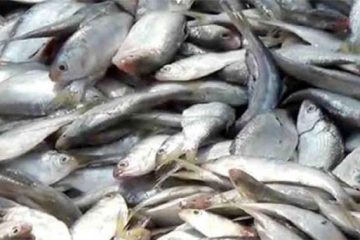Envoy says New Delhi ready to exchange documents
Eight months after the extradition treaty with India was signed, the Cabinet on Monday ratified it to facilitate handover of criminals between the two countries. The Indian government also ratified the treaty recently. After the Cabinet meeting, held at the secretariat, Cabinet secretary Muhammad Musharraf Hossain Bhuiyan told reporters that the treaty will come into effect after the documents are exchanged. Indian deputy high commissioner in Dhaka, Sandeep Chakravorty, told The Independent that they are ready to exchange the documents as their government has already ratified it. “The authorities of the Indian government will fix a date for exchanging the documents after getting a letter in this regard from the Bangladesh government,” he said.
Additional secretary of the home ministry, Dr Kamal Uddin Ahmed, told this correspondent that they will soon write to the Indian government for exchanging the documents after receiving the letter for ratification of the extradition treaty from the Cabinet Division. It is learnt that there is no barrier to deporting the general secretary of the United Liberation Front of Asom (ULFA), Anup Chetia, and other members of the organisation, who have been hiding in Bangladesh, to India under the treaty.
On the other hand, the treaty will help Bangladesh extradite some fugitives, including two killers of Bangabadhu Sheikh Mujibur Rahman, Capt. (dismissed) Mazed and Risalder (dismissed) Muslehuddin, from India. Home minister Dr Muhiuddin Khan Alamgir had said earlier that ULFA leader Anup Chetia would not be extradited under the extradition treaty.
Indian home minister Sushilkumar Shinde, at a joint statement after signing the treaty, had said that the extradition treaty will help enhance cooperation among law enforcement agencies of the countries and curb criminal activities.
Meanwhile, the Cabinet also approved the draft of an agreement titled ‘Memorandum of Cooperation between the Ministry of Home Affairs of Bangladesh and the United States Drug Enforcement Administration for Mutual Cooperation in the Sphere of Drug Control’.
Cabinet secretary Muhammad Musharraf Hossain Bhuiyan said the proposed agreement will help curb terrorism and drug trafficking between the countries.
According to Section 1 of the draft agreement, this memorandum of cooperation is intended to strengthen and increase cooperation between the participants, and is aimed at combating organised criminal groups with national, regional, and international connections, illicit drug and precursor chemical trafficking, and preventing drug smuggling across international borders.
Section 2 of the draft says: “Cooperation between the participants under this memorandum may be conducted in the following forms: (a) exchanges of information on matters related to combating illicit drug trafficking and precursors; (b) assistance with respect to law enforcement investigative activities; (c) cooperation in combating drug and precursor chemicals trafficking, including participating in controlled deliveries, conducting coordinated operations related to the drug or chemical shipment trafficking, and participating in coordinated undercover operations; (d) participation in meetings, conferences and seminars intended to foster a mutually beneficial exchange of information and experiences; (e) exchanges of information regarding statistical data and guidelines on combating illicit trafficking in drugs and precursors, including drug abuse prevention; (f) exchanges of drug samples and results of analysis of drugs seized from illicit trafficking; and (g) mutual participation in personnel training and law enforcement skills development. This memorandum is not intended to preclude the participants from expanding into other mutually acceptable forms of cooperation.”
Section 3 of the draft agreement says, “Information exchanged in connection with this memorandum may include: (a) information about crimes, committed or attempted, related to drug or chemical precursor trafficking; (b) information about persons suspected of involvement in drug or precursor trafficking; (c) information about criminal groups that are involved in drug or precursor trafficking of a national or transnational nature; (d) information about activities related to laundering of the proceeds derived from illicit drug trafficking and precursors; (e) information about the means of concealment and disguise of drugs and their precursors used by traffickers in cultivation, production, transportation and trafficking, as well as methods of detection; and (f) information about other issues of mutual interest.”
-With The Independent input




















